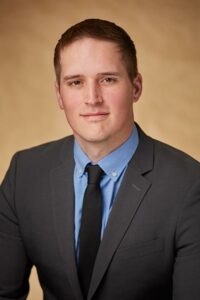Washington Legislature Considers New Presumptions for COVID-19
 In the past, the Washington legislature created presumptive workers’ compensation causation for firefighters and workers at the Hanford Site. The legislature is close to creating a presumption for frontline workers who contract COVID-19 as well. Two bills creating such a presumption, as well as expanding unemployment benefit coverage to workers who may have been exposed to COVID-19, have passed the Senate and are currently before the House.
In the past, the Washington legislature created presumptive workers’ compensation causation for firefighters and workers at the Hanford Site. The legislature is close to creating a presumption for frontline workers who contract COVID-19 as well. Two bills creating such a presumption, as well as expanding unemployment benefit coverage to workers who may have been exposed to COVID-19, have passed the Senate and are currently before the House.
The first bill, SB 5115 (or the Health Emergency Labor Standards Act), would add a new section to the Industrial Insurance Act establishing a presumption that any frontline employee who contracts COVID-19 did so due to work activities. A “frontline employee” would be defined as any first responder, healthcare worker or employee of a healthcare facility, employees working with food (including processing, packaging and distribution), farm workers, public transit employees, licensed childcare and home care workers, retail employees, hospitality employees, restaurant employees, and corrections officers. Other employees would be covered under certain scenarios, including teachers or college professors required to be physically present at a school. An employer could rebut the presumption through a preponderance of the evidence showing the frontline employee contracted the disease outside of work. The bill would also add reporting requirements for employers with a certain number of confirmed cases.
The second bill, SB 5190, would create a presumption only applicable to health care workers. The presumption is similar to that created by SB 5115 but increases the evidentiary standard for an employer to rebut the presumption to clear and convincing evidence. In addition to the workers’ compensation provisions, the bill would also expand unemployment benefits for workers in quarantine.
Typically, an injured worker must establish by a preponderance of the evidence that an occupational disease arose naturally and proximately out of their work activities. Where a presumption has been applied, this formula is flipped: rather than the worker showing they were injured or exposed to a disease at work, their employer must show that the worker was not injured or exposed at work. The employer must establish the worker was exposed to the disease somewhere else, either through a preponderance of the evidence or, under SB 5190, by clear and convincing evidence (evidentiary standards are always somewhat vaguely defined, but clear and convincing means the evidence of non-work exposure is substantially more likely to be true than the evidence of work-related exposure).
To illustrate the difference, consider a typical occupational disease claim. If there is evidence to suggest the worker contracted the disease outside of work (at a social gathering, for example) and a denial is issued, the worker must show that it is more likely than not their work activities which exposed them to the disease. Now consider the same situation but the claimant is a retail employee, and the alleged disease is COVID-19. It is presumed the worker contracted COVID-19 from work, and the employer must show it is more likely than not the social gathering which was the spreading event. If the worker is a nurse and catches COVID-19, it is presumed the worker contracted COVID-19 from work, the employer must show it is substantially more likely the worker contracted the disease at the social gathering.
The new bills, if passed, would be enacted with an emergency clause, meaning they would go into effect immediately. If a covered worker did not contract the disease but was directed to quarantine, they would be eligible for temporary total disability benefits starting the day they went into quarantine. If a worker does contract the disease, they would be eligible for the full range of benefits.
While these bills were clearly designed to address COVID-19 and the current pandemic, the healthcare worker presumption would apply not only to COVID-19, but to any disease declared a public health emergency, whether federally or by the Governor. The frontline worker presumption would apply to any public health emergency so long as the subject of the public health emergency was a disease spread through respiratory droplets or aerosols, or through contact with contaminated surfaces.
Questions of causation are always complicated, but a presumption makes issuing a denial especially tricky. If you have a claim for COVID-19 in which there is reason to believe a frontline or healthcare worker contracted the disease outside of work, please do not hesitate to contact me at or 971-867-2718.
Posted by Matthew Baker.

